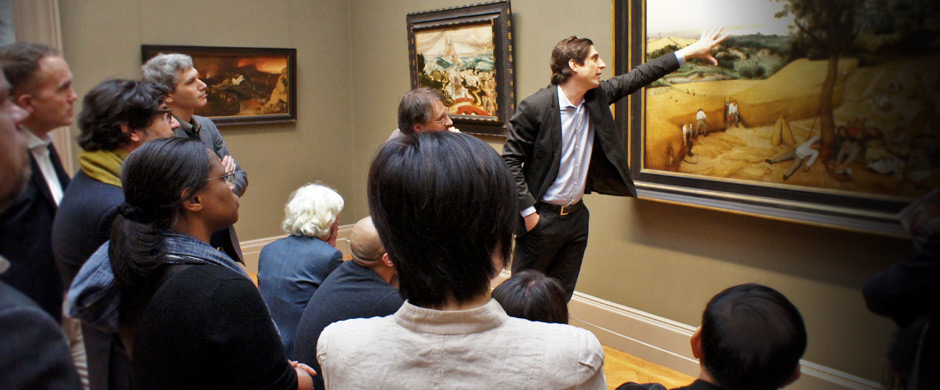 | In the Field
| In the Field

Mellon Research Initiative: Events
Image and Ontology in Comparative Perspective
April 28-29, 2012
Convened by David Wengrow, Professor of Comparative Archaeology, Institute of Archaeology, University College London
Ontology constitutes a society’s vision of totality; it is its most complete cultural inventory of what there is in the world, why it exists, and how it got there. Ontological perspectives on the nature of existence are oriented both inwards, towards the person, and outwards towards the cosmos and all it contains. The ontological status of images, and the question of what can and cannot be made visible as image, is a subject of deep contention in both western and non-western intellectual traditions. Moreover, the history of inter-cultural relations, from antiquity to the present, demonstrates the importance of images both in negotiating ontological difference and in mobilizing ontological frameworks in struggles over power, land, and resources.
One aim of this colloquium was to highlight something of this historical and cultural diversity with examples and case studies that cut across regions (China, the Mediterranean, Amazonia), disciplinary frameworks (archaeology, anthropology, art history) and also chronological periods (Bronze-Iron Age, Byzantine, Islamic) within a single territory (the Middle East). But its deeper purpose is to ask whether comparisons of this sort can amount to more than a multiplicity of historically contingent perspectives. Can the different scales of analysis and types of source material deployed in various disciplines be combined to ask general questions about the relationship between image and ontology? Or are the methodological obstacles simply too great to make such comparisons viable and compelling?
Speakers
Zainab Bahrani, Edith Porada Professor of Ancient Near Eastern Art and Archaeology, Columbia University
Suzanne Blier, Allen Whitehill Clowes Professor of Fine Art; Professor of African and African American Studies, Harvard University
Philippe Descola, Professor of Anthropology, Collège de France
Finbarr Barry Flood, William R. Kenan Jr. Professor of the Humanities, Institute of Fine Arts and College of Arts and Science
Jonathan Hay, Ailsa Mellon Bruce Professor of Fine Arts, Institute of Fine Arts
Fred Myers, Silver Professor of Anthropology, Department of Anthropology, New York University
Alexander Nemerov, Vincent Scully Professor of the History of Art, Yale University of Art
John Robb, Reader in European Prehistory, Department of Archaeology, University of Cambridge
Anne-ChristineTaylor, Director of the Education and Research Department, Musée du quai Branly
Lillian Lan-ying Tseng, Associate Professor of East Asian Art and Archaeology, Institute for the Study of the Ancient World, New York University
Convened by David Wengrow, Professor of Comparative Archaeology, Institute of Archaeology, University College London
Programme
Saturday 28th April
3:30pm Registration
4pm Introduction and welcome: Patricia Rubin, Director, Institute of Fine Arts, NYU
4:15 Plenary Lecture: La Fabrique des images, Philippe Descola, Collège de France
5pm Response: Fred Myers, New York University, Anthropology
5:30 Wine reception at the Institute of Fine Arts. Posters by current Institute students, addressing the themes of the conference with objects from various New York collections, will be on display.
Sunday 29th April
9:30am Registration
Session 1: Sources for an ontology of the image
Chair: Suzanne Blier, Harvard University
10am Archaeology: John Robb, Cambridge University
10:40 Anthropology: Anne-Christine Taylor, Musée du quai Branly
11:20 History of Art : Alex Nemerov, Yale University
12pm Short Poster Presentations I: Matthew Breatore, Marci Kwon, Sean Nesselrode
12:30 Lunch Break
Session 2: Comparing Image Worlds
Chair: Jonathan Hay, Institute of Fine Arts, NYU
2pm Islam: Finbarr Barry Flood, Institute of Fine Arts, NYU
2:40 China: Lilian Tseng, Institute for the Study of the Ancient World, NYU
3:20 Ancient Near East: Zainab Bahrani, Columbia University
4pm Short Poster Presentations II: Brendan Sullivan, Matthew Worsnick
4.30 Concluding remarks (David Wengrow, University College London)